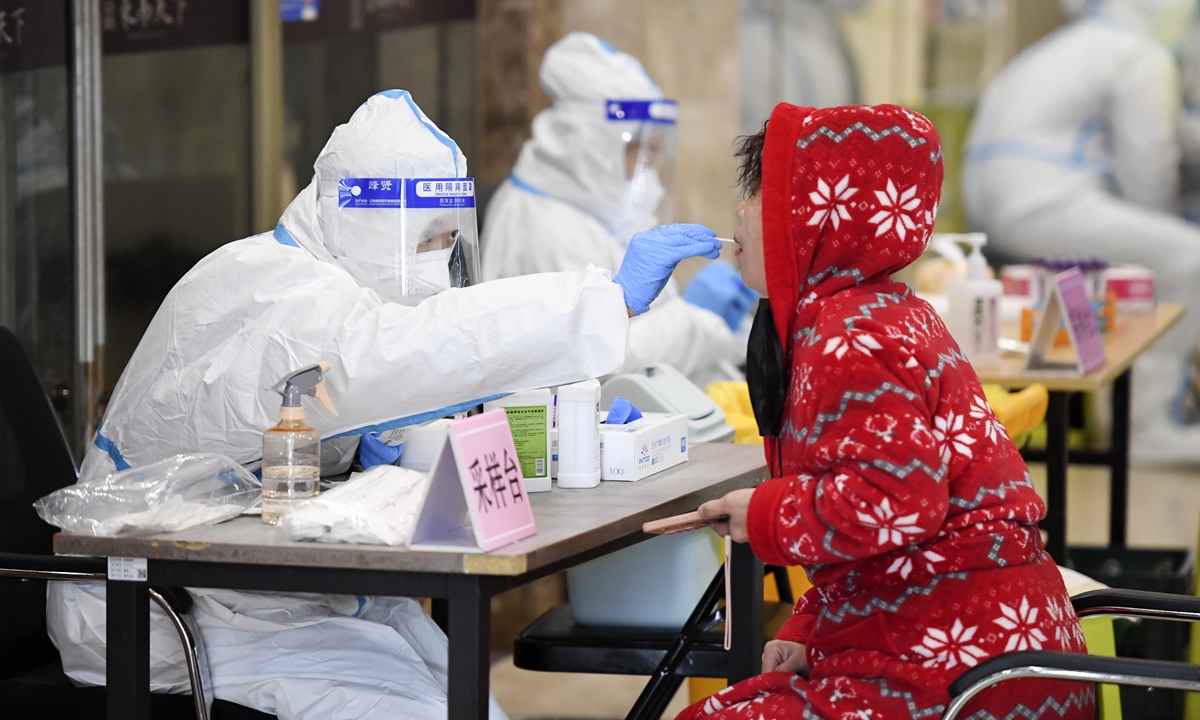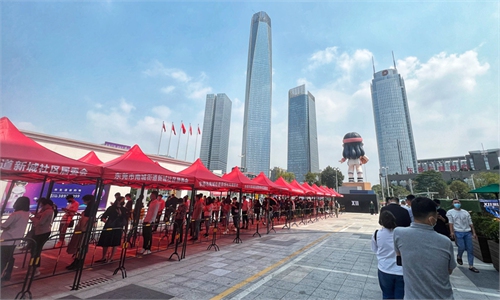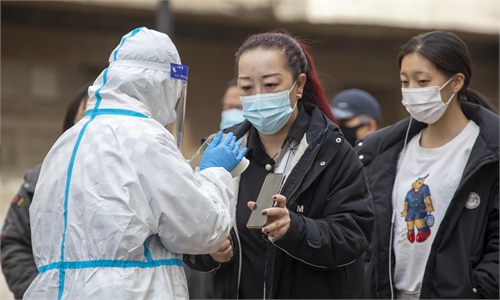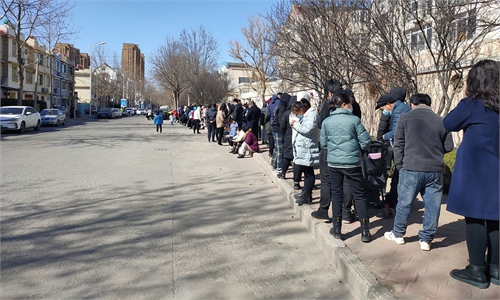
A person takes a nuceic acid test in Changchun, Northeast China's Jilin Province on March 13, 2022 as the city starts a new round of testing. Photo: VCG
At least 26 government officials have recently been dismissed for poor performance in handling the epidemic in cities in South China's Guangdong and Northeast China's Jilin as well as East China's Shandong provinces where COVID-19 broke out.
Reasonable punishment of derelict officials is significant in warning cities not to let their guard down, as any small oversight or loophole could ruin the previous achievements in epidemic prevention. Holding derelict officials accountable contributes to enhancing epidemic prevention and control measures, Chinese observers believe.
Dongguan, Guangdong Province on Sunday removed a total of six officials for poor performance of duties amid cluster outbreaks in Dalang township.
Huang Shouying, deputy director of the Guangdong Provincial Public Security Department, Wang Changqing, executive vice mayor of Dongguan, and Bi Hongbo, director of the Public Security Bureau of Dongguan, were removed from their positions. Three other officials from Dalang township and Dongguan city were also removed.
Jilin Province sacked at least three officials, including Wang Lu, the mayor and deputy Party chief of Jilin city, Li Xin, the head of the Jiutai district of Changchun and Gao Yutang, director of the Changchun Municipal Health Commission.
The province of Jilin reported more than 2,000 COVID-19 infections on Saturday. The Jilin provincial government said that the defective emergency response in some regions accounted for the sharp rise of infections.
Zhang Lifeng, Party secretary of the Jilin Agricultural Science and Technology University in Jilin city, on Thursday was sacked for negligence and an ineffective response to a cluster infection that hit the university.
On Thursday, a total of 17 officials from epidemic-hit Laixi in Shandong Province were punished for severe loopholes in daily epidemic prevention tasks, especially their low alert levels and negligent attitude to COVID-19 in crowded places like schools.
The punishment of irresponsible officials implies the country heavily attaches importance to people's lives and health, an issue that no one should underestimate, Wang Guangfa, a respiratory expert at Peking University First Hospital who was also among the experts of the National Health Commission who visited Wuhan in early January 2020, told the Global Times.
Since the Wuhan outbreak in late 2019, China has paid great attention to holding derelict officials accountable as part of its anti-epidemic strategy, as local government officials are key links for the country to sustain its dynamic-zero policy, which requires them to have strong mobilization capabilities to implement the policy, observers noted.
Wang said it is the fact that a certain level of inevitable fatigue is developing in society as the country's fight against COVID-19 enters its third year. It will take more efforts to adjust anti-epidemic measures in a flexible way as the epidemic situation changes.
When there is no epidemic, society could relax and reduce the anti-epidemic impact on society to the lowest extent, and when an epidemic occurs, society can immediately respond and be alert, Wang explained.




